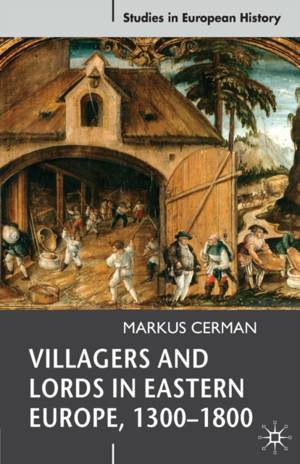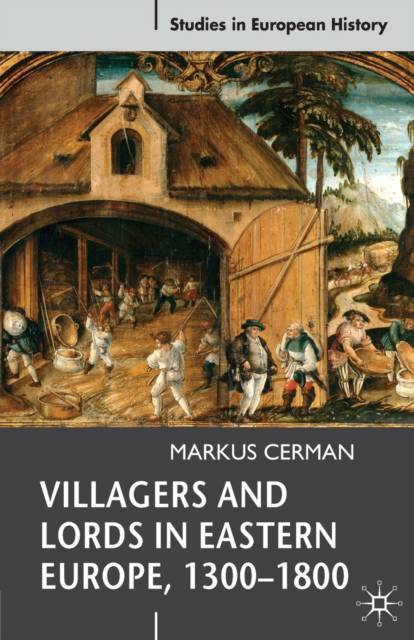
- Retrait gratuit dans votre magasin Club
- 7.000.000 titres dans notre catalogue
- Payer en toute sécurité
- Toujours un magasin près de chez vous
- Retrait gratuit dans votre magasin Club
- 7.000.0000 titres dans notre catalogue
- Payer en toute sécurité
- Toujours un magasin près de chez vous
Description
This new study provides an up-to-date survey of social and economic developments in early modern Eastern European rural societies. Markus Cerman revises the traditional images of mighty lords and poor, powerless 'serf peasants', discussing the theories which led to the assumption that serfdom existed throughout the region.
Cerman contrasts the interpretation of a long-term backwardness with a fresh view of the legal, social and economic status of villagers, their living standards and their role in actively shaping rural communities. Featuring helpful tables, a glossary and a comprehensive bibliography, this is a stimulating reassessment for anyone studying this period and often neglected topic in European history.Spécifications
Parties prenantes
- Auteur(s) :
- Editeur:
Contenu
- Nombre de pages :
- 176
- Langue:
- Anglais
- Collection :
- Tome:
- n° 31
Caractéristiques
- EAN:
- 9780230004603
- Date de parution :
- 03-09-12
- Format:
- Livre broché
- Format numérique:
- Trade paperback (VS)
- Dimensions :
- 137 mm x 213 mm
- Poids :
- 226 g

Les avis
Nous publions uniquement les avis qui respectent les conditions requises. Consultez nos conditions pour les avis.






